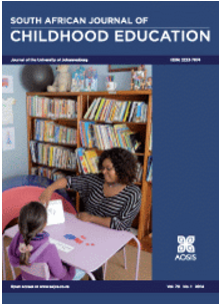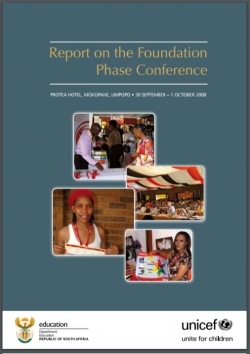Mediterranean Journal of Social Sciences 5(3):512-522 Factors facilitating the adjustment of immigrant children from Zimbabwe in the foundation phase to South African schools

Type
E-Journal
Category
ECCE, Foundation
[ Browse Items ]
Publication Year
2014
Publisher
URL
[ private ]
Pages
10 p.
Subject
Early childhood education, Primary education, Immigrant children, Academic performance, Cultural adjustment, Communities of practice, Legitimate peripheral participation, South African schools, Zimbabwe, South Africa
Tags
Abstract
This paper explores the effects of the encounter between the host and home cultures on Zimbabwean immigrant children’s acculturation and academic performance in the Foundation Phase in two South African primary schools. The study was qualitative, and made use of case study and narrative inquiry as methodology. Data were collected using interviews, field notes and observation techniques, analysed via document and content analyses. The sample consisted of four immigrant children from Zimbabwe, their parents and teachers. Utilising the communities of practice (Wenger, 1998) and legitimate peripheral participation frameworks, results from the study reveal the following. First, amiable teacher-learner relationships enhanced the adjustment of immigrant children from Zimbabwe in the Foundation Phase to the academic regimen of the schools. Second, adjusting to the school environment can be complicated for immigrant children when they are not acquainted with the language of communication, indigenous South African languages and the academic regimen of the school. Third, linguistically disadvantaged immigrant devised own means of communicating with peers in their communities of practice.
Number of Copies
1
| Library | Accession No | Call No | Copy No | Edition | Location | Availability |
|---|---|---|---|---|---|---|
| 1 | Rome, Italy | Yes |

